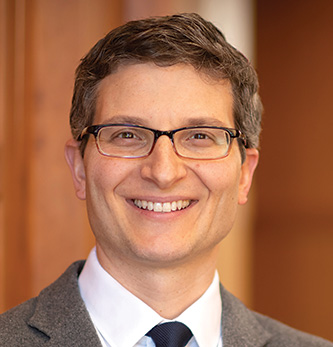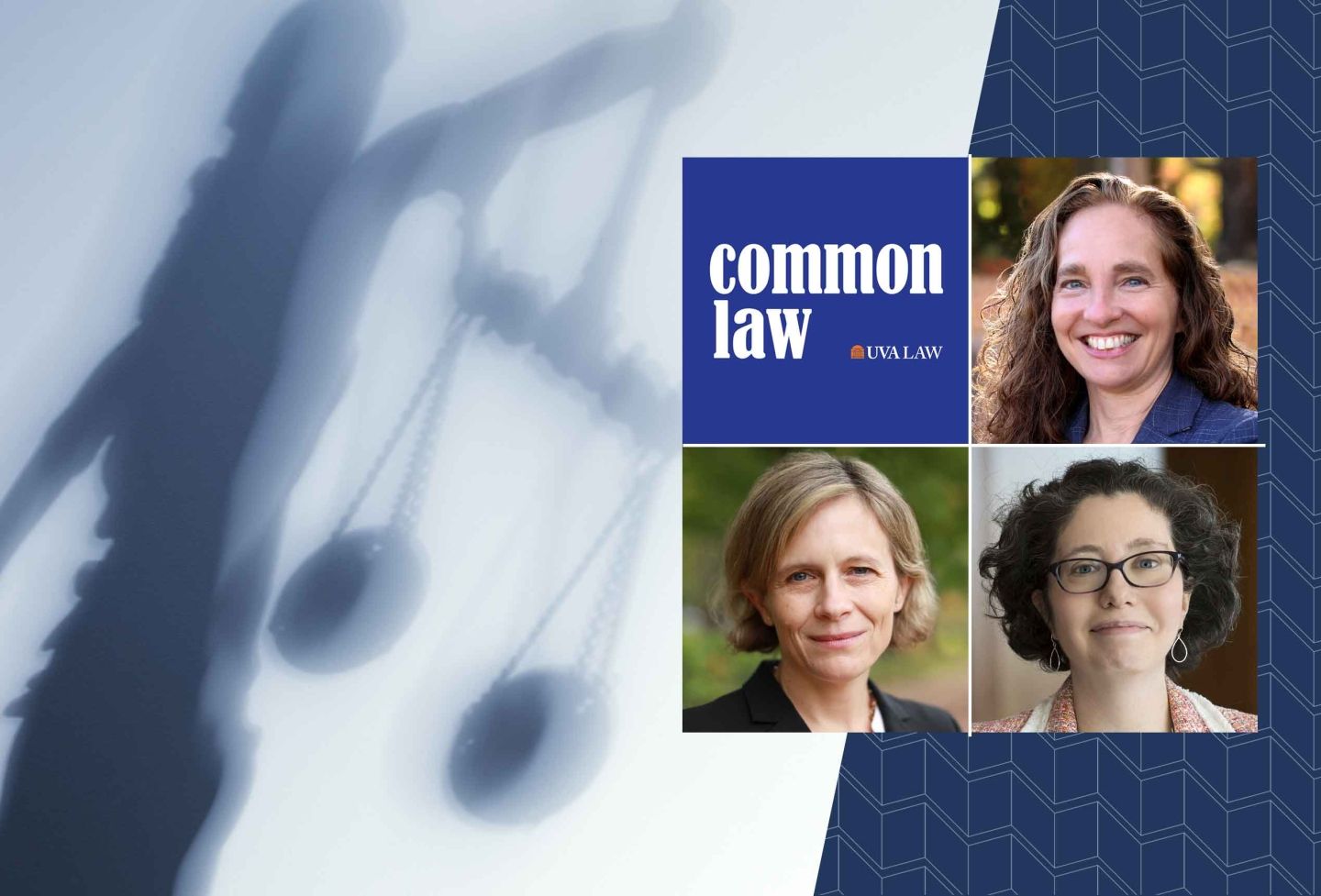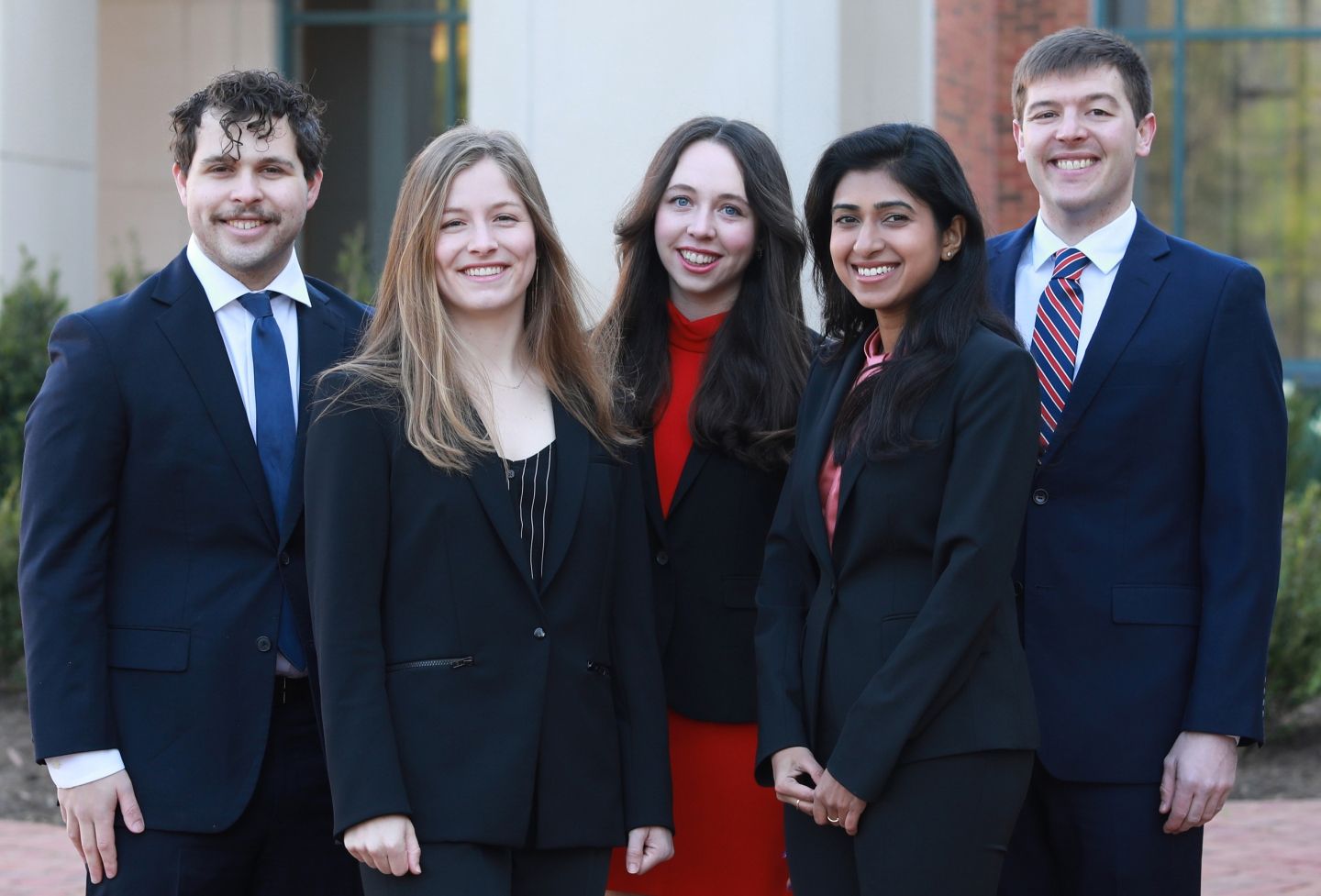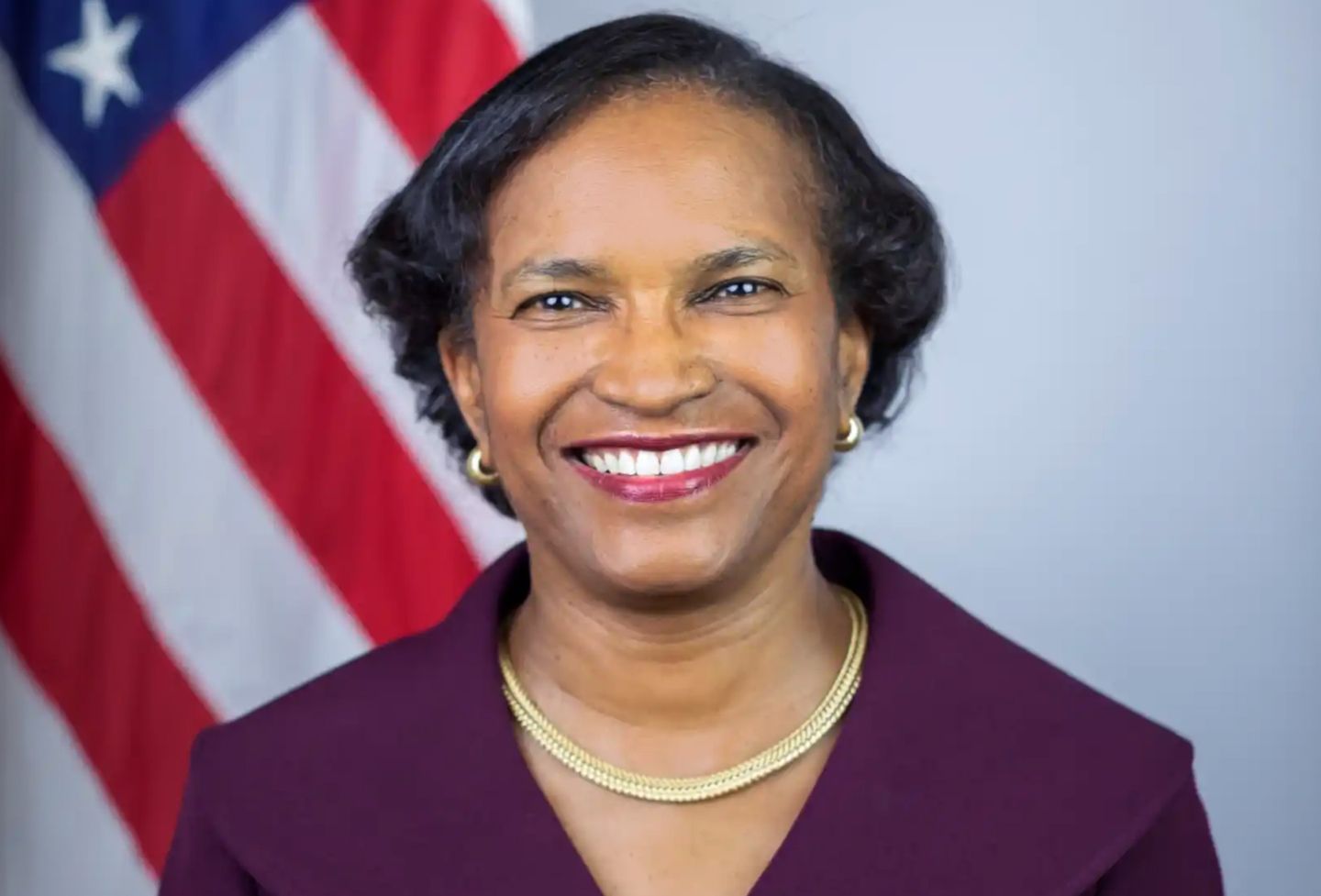A new center that applies economics to the study of law and politics has been established at the University of Virginia School of Law. The Center for Public Law and Political Economy is led by Professor Michael D. Gilbert.
Gilbert said political economy can be a broad category, but for the purposes of the center, “It refers to the application of economic theories and methods to legal and political phenomena. It’s using the tools of economics to think about puzzles in public law. The center will unify the scholarship and teaching of our many faculty members who draw on political economy in their work.”
In addition, the center will promote new research, connect with students and build upon the Law School’s longstanding strength in this area. The school has a law and economics working paper series as well as a faculty workshop sponsored by the John M. Olin Program in Law and Economics.

Gilbert himself is an expert in law and economics, legislation, election law, direct democracy and judicial decision-making.
UVA as a whole has been a leader in the political economy discussion since the 1950s and ’60s, when James Buchanan and Gordon Tullock wrote “The Calculus of Consent,” and Ronald Coase wrote “The Problem of Social Cost.” Buchanan and Coase, who later each won the Nobel Memorial Prize in Economic Sciences, wrote those seminal works while on the UVA faculty.
“Their works form much of the backbone of this area of study,” Gilbert said.
Today, the next generation of economics-based research leaders includes UVA Law faculty. In addition to Gilbert, the center’s affiliates are Kevin Cope, Joshua Fischman, Andrew Hayashi, Jason S. Johnston, Edmund W. Kitch, Michael A. Livermore, Julia D. Mahoney, Paul G. Mahoney, Ruth Mason, John K. Setear, Paul B. Stephan ’77, Megan T. Stevenson, Pierre Hugues-Verdier, J.H. “Rip” Verkerke and Mila Versteeg.
Like Gilbert, who holds a Ph.D. in jurisprudence and social policy from the University of California, Berkeley, several of these faculty members have Ph.D.s in the areas of economics and political science.
“The center’s faculty study issues ranging from criminal justice and financial regulation to the environment and constitutional law,” Gilbert said. “It’s a distinguished group of scholars doing top-notch work. We’re lucky to have them at UVA.”
A sampling of recent articles by the faculty includes “Algorithmic Social Engineering” by Stevenson, an economist and criminal justice scholar; “Identifying Illegal Subsides” by Mason, an expert in international tax issues; and “Computationally Assisted Regulatory Participation,” by Livermore, who studies bureaucratic oversight and the computational analysis of law.
Gilbert’s own recent papers include “Conflict Avoidance in Constitutional Law,” with Professor Charles Barzun ’05, which is forthcoming in the Virginia Law Review, and “The Law and Economics of Entrenchment,” which was published last year in the Georgia Law Review.
The center will work with other UVA Law centers, such as the Karsh Center for Law and Democracy and the Virginia Center for Tax Law, as well as other experts within the broader academic community.
To encourage students who may be interested in this area of study, the center plans to host events as well as to delineate connections between courses whose titles may seem dissimilar, but which call upon economics-based research methods.
“If you take Securities Regulations from Paul Mahoney and Constitutional Law and Economics from me, those might sound like very different courses, but in fact you’ll see commonalities in our methodological approach,” Gilbert said.
Next year the center will host the 16th annual Conference on Empirical Legal Studies, known as CELS, at the Law School.
Gilbert is also associated with the Karsh Center as a Martha Lubin Karsh and Bruce A. Karsh Bicentennial Professor of Law. He is author of more than two dozen articles or book chapters, including the co-author of the chapter “Constitutional Law and Economics” for the forthcoming book “Research Methods in Constitutional Law.” He is an affiliate of the Corruption Lab on Ethics, Accountability, and the Rule of Law, or CLEAR, part of UVA’s broader Democracy Initiative. He received the All-University Teaching Award in the spring.
Founded in 1819, the University of Virginia School of Law is the second-oldest continuously operating law school in the nation. Consistently ranked among the top law schools, Virginia is a world-renowned training ground for distinguished lawyers and public servants, instilling in them a commitment to leadership, integrity and community service.


